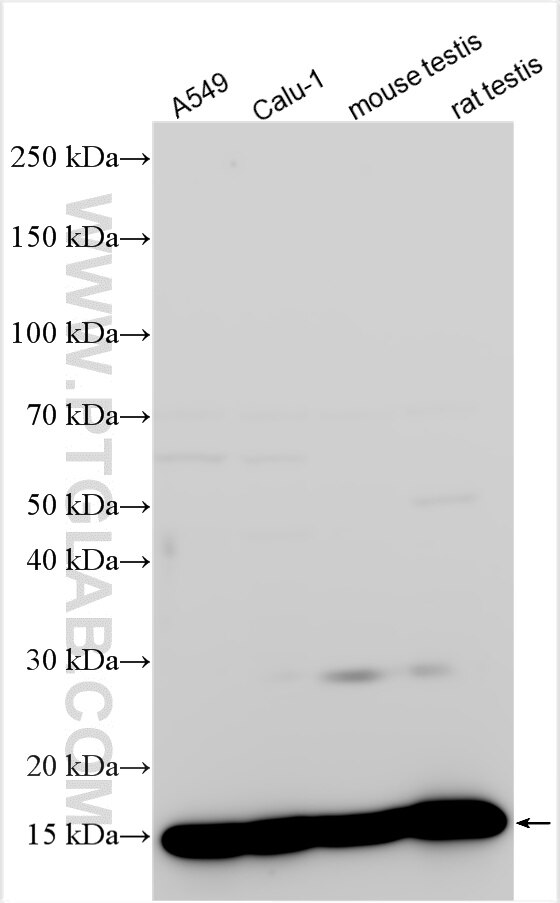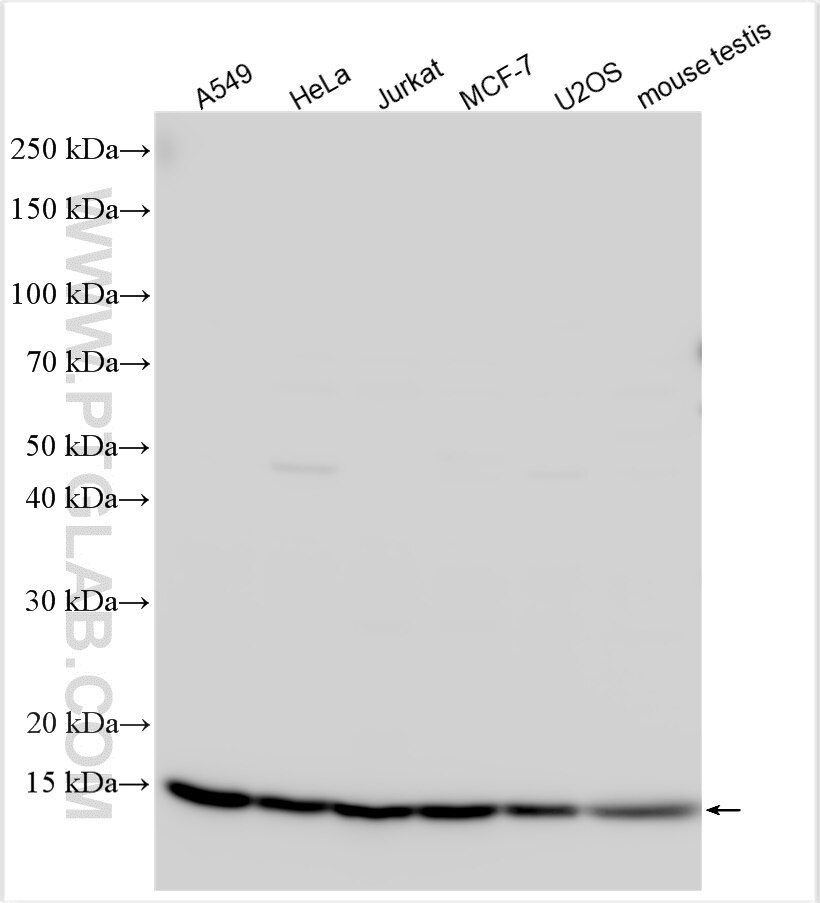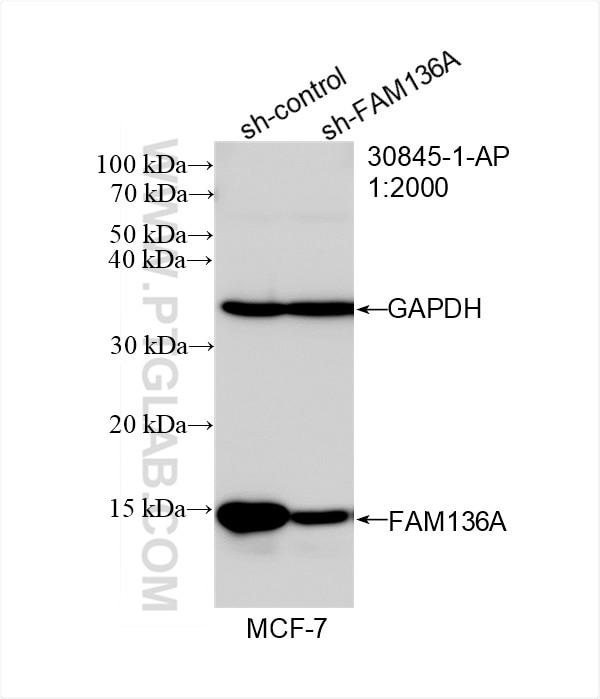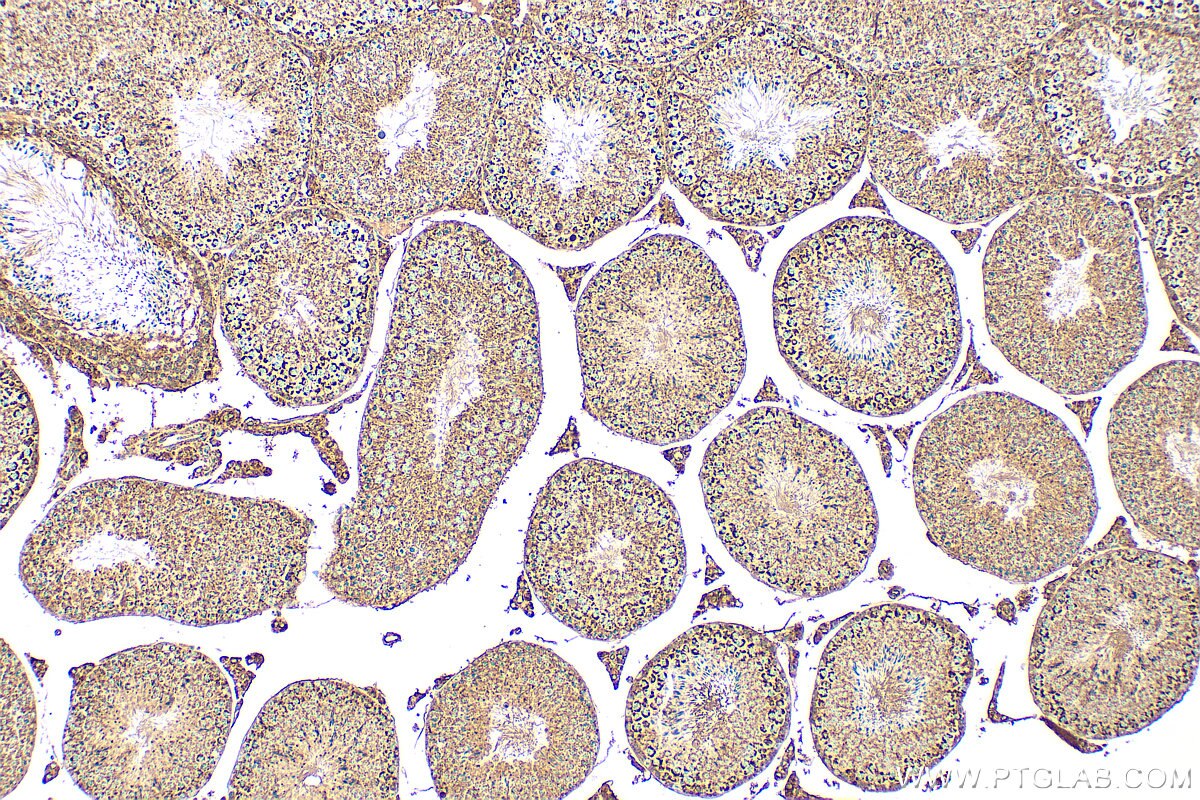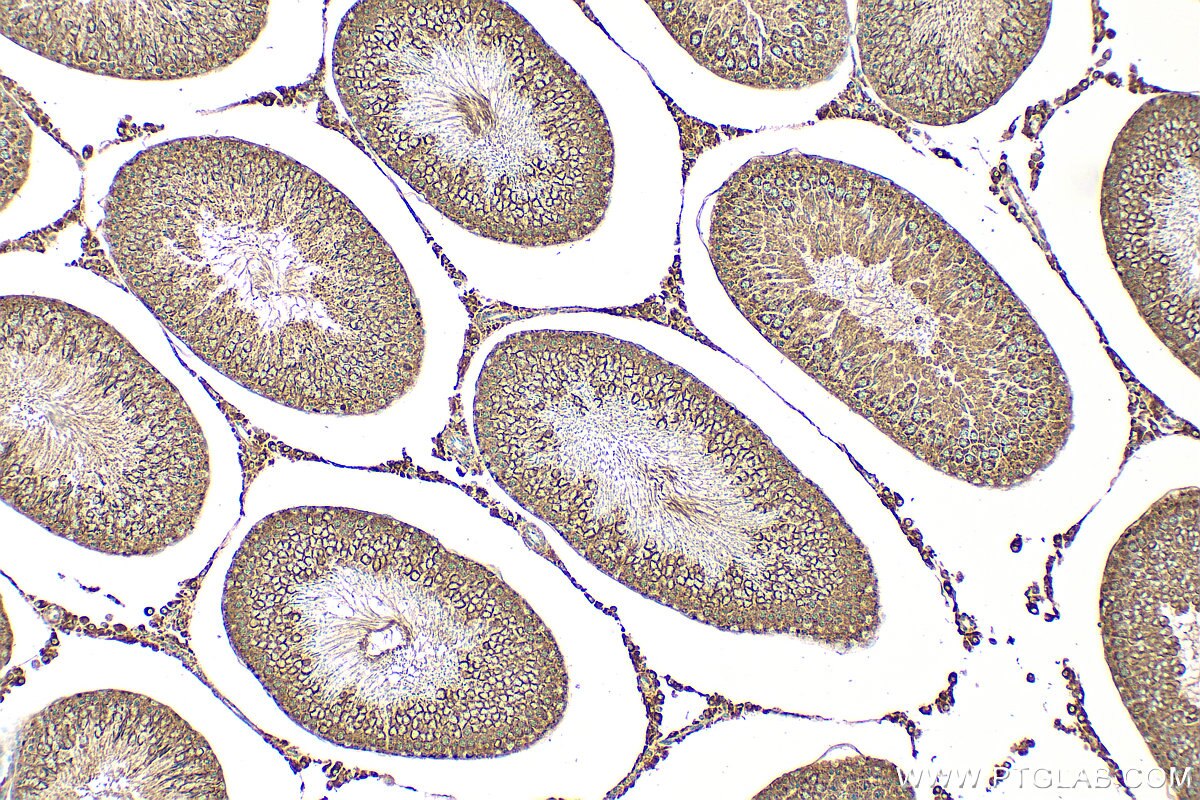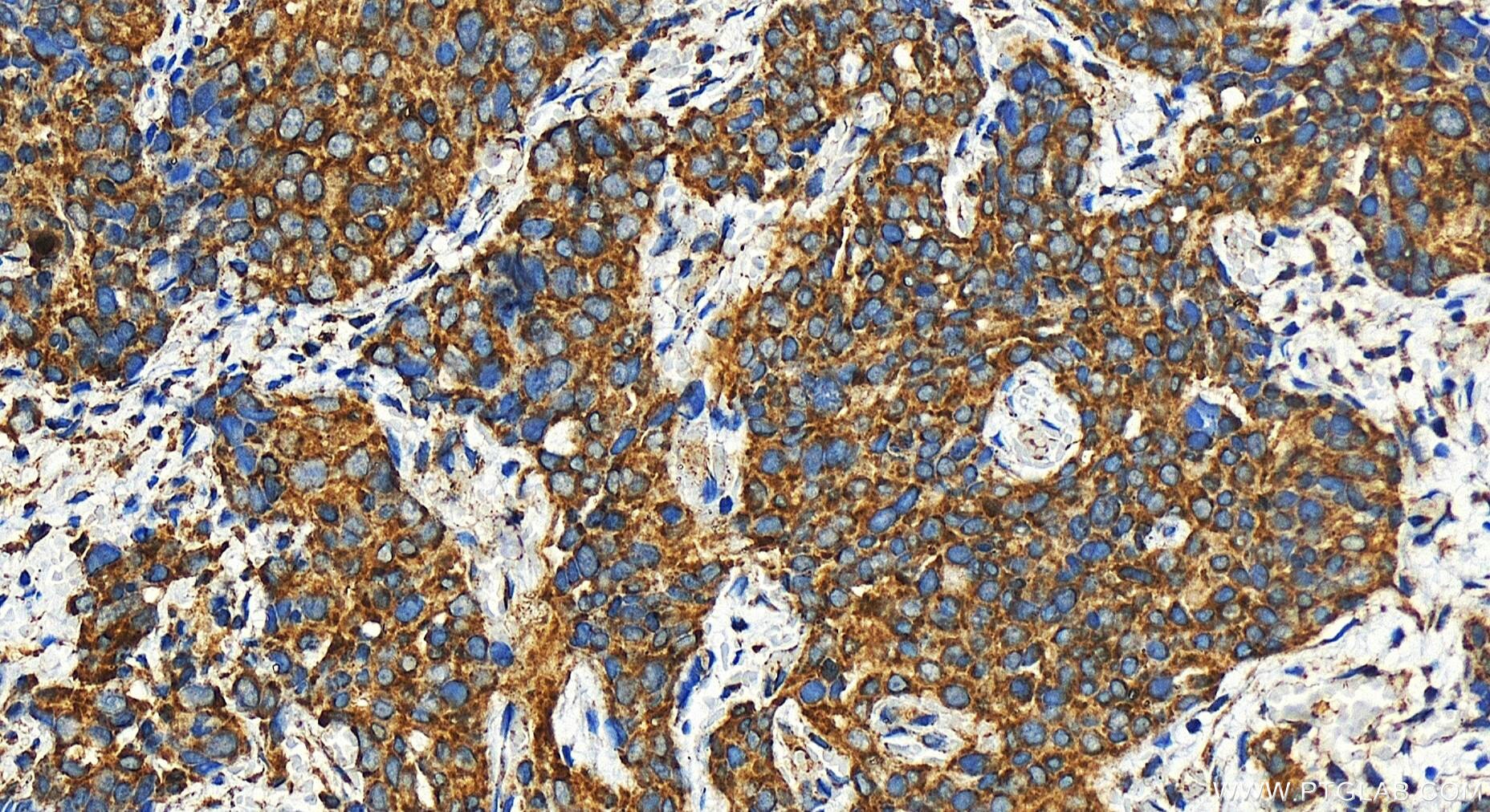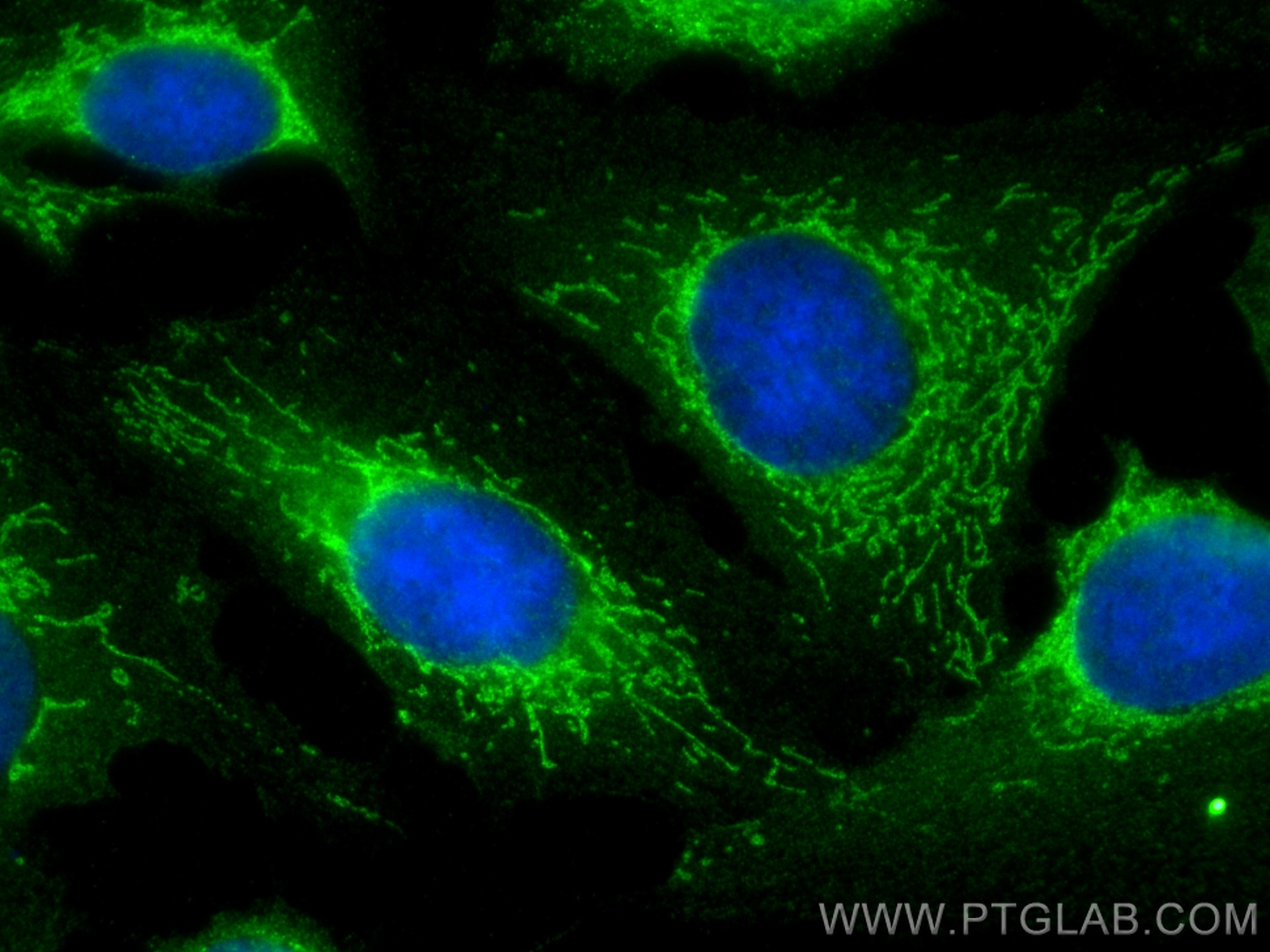- Featured Product
- KD/KO Validated
FAM136A Polyklonaler Antikörper
FAM136A Polyklonal Antikörper für WB, IHC, IF/ICC, ELISA
Wirt / Isotyp
Kaninchen / IgG
Getestete Reaktivität
human, Maus
Anwendung
WB, IHC, IF/ICC, ELISA
Konjugation
Unkonjugiert
Kat-Nr. : 30845-1-AP
Synonyme
Geprüfte Anwendungen
| Erfolgreiche Detektion in WB | A549-Zellen, HeLa-Zellen, Jurkat-Zellen, MCF-7-Zellen, Maushodengewebe, Rattenhodengewebe, U2OS-Zellen |
| Erfolgreiche Detektion in IHC | human ovary cancer tissue, Maushodengewebe, Rattenhodengewebe Hinweis: Antigendemaskierung mit TE-Puffer pH 9,0 empfohlen. (*) Wahlweise kann die Antigendemaskierung auch mit Citratpuffer pH 6,0 erfolgen. |
| Erfolgreiche Detektion in IF/ICC | U2OS-Zellen |
Empfohlene Verdünnung
| Anwendung | Verdünnung |
|---|---|
| Western Blot (WB) | WB : 1:2000-1:16000 |
| Immunhistochemie (IHC) | IHC : 1:50-1:500 |
| Immunfluoreszenz (IF)/ICC | IF/ICC : 1:200-1:800 |
| It is recommended that this reagent should be titrated in each testing system to obtain optimal results. | |
| Sample-dependent, check data in validation data gallery | |
Veröffentlichte Anwendungen
| WB | See 1 publications below |
Produktinformation
30845-1-AP bindet in WB, IHC, IF/ICC, ELISA FAM136A und zeigt Reaktivität mit human, Maus
| Getestete Reaktivität | human, Maus |
| In Publikationen genannte Reaktivität | human |
| Wirt / Isotyp | Kaninchen / IgG |
| Klonalität | Polyklonal |
| Typ | Antikörper |
| Immunogen | FAM136A fusion protein Ag34058 |
| Vollständiger Name | family with sequence similarity 136, member A |
| Beobachtetes Molekulargewicht | 15 kDa |
| GenBank-Zugangsnummer | BC014975 |
| Gene symbol | FAM136A |
| Gene ID (NCBI) | 84908 |
| Konjugation | Unkonjugiert |
| Form | Liquid |
| Reinigungsmethode | Antigen-Affinitätsreinigung |
| Lagerungspuffer | PBS with 0.02% sodium azide and 50% glycerol |
| Lagerungsbedingungen | Bei -20°C lagern. Nach dem Versand ein Jahr lang stabil Aliquotieren ist bei -20oC Lagerung nicht notwendig. 20ul Größen enthalten 0,1% BSA. |
Hintergrundinformationen
FAM136A is an evolutively conserved nuclear gene encoding a mitochondrial protein whose specific function is unknown, but which is commonly found in neurosensory epithelial cells, where it plays a role in the electron transport chain of respiration (PMID: 37461313). FAM136A, with a molecular mass of 16-kDa, is normally expressed in the cytoplasm and has been linked to familial Meniere's disease.
Protokolle
| PRODUKTSPEZIFISCHE PROTOKOLLE | |
|---|---|
| WB protocol for FAM136A antibody 30845-1-AP | Protokoll herunterladen |
| IHC protocol for FAM136A antibody 30845-1-AP | Protokoll herunterladenl |
| IF protocol for FAM136A antibody 30845-1-AP | Protokoll herunterladen |
| STANDARD-PROTOKOLLE | |
|---|---|
| Klicken Sie hier, um unsere Standardprotokolle anzuzeigen |
